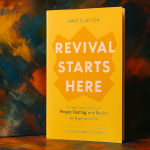A couple days ago I wrote here about the controversy over open theism among evangelicals. I regard it as a sad episode riddled with misinformation, misrepresentation and even, too often, outright demagoguery.
The tenor of the controversy is one thing; the truth status of open theism is another thing. I was writing then primarily about the controversy. I believe that, for the most part, it was left unfinished. The anti-open theists, mostly Calvinists, won the day insofar as they persuaded (often, I am convinced, through misrepresentation) evangelical leaders such as administrators of institutions of higher learning to shun open theists.
One reason I am convinced the discussion about open theism should continue (in a different way) is that I know many “closet open theists” and open theists who “changed their minds” in order to secure or keep their positions in evangelical organizations. This is unfortunate; a position so widely held by biblically committed evangelical men and women should be open to lengthy, detailed, careful examination through dialogue and debate and not anathematized without that.
One example of what I’m referring to is the Southern Baptist Convention’s 2000 revision of the Baptist Faith and Message. It explicitly excluded open theism, in my opinion, without a full and fair hearing of that view from open theists themselves.
One example of the lack of charitable and fair dialogue appears in a message posted here. Many of open theism’s critics claim that it denies God’s omnipotence. This is simply another example of the neo-fundamentalist tendency to accuse others of actually holding beliefs they do not hold because the accuser thinks those beliefs are logically entailed by other beliefs. For example: “Open theism denies God’s omnipotence because if God does not have exhaustive foreknowledge….” The plain fact is that open theism DOES NOT deny God’s omnipotence and to say otherwise is to come close to vicious calumny and even outright dishonesty. It is equivalent to the claim made by some notable Calvinists that Arminianism denies the sovereignty of God. That’s simply a bold-faced lie UNLESS the person making the claim explains that he or she means Arminianism denies the Calvinist view of the sovereignty of God. Calvinists would feel the same way (and do) if Arminians or other non-Calvinists say that Calvinism denies the love of God without going on to explain that Calvinists claim to believe in the love of God but it is a different account of God’s love than the Arminian believes is biblical and reasonable.
Open theism is not heresy because it does affirm God’s omnipotence and even God’s omniscience. Anyone who says otherwise needs to go back and read books by open theists such as The Openness of God (by Pinnock, Hasker, Rice, Sanders and Basinger) and The God Who Risks (by Sanders) and The God of the Possible (by Boyd).
What is at issue is NOT God’s nature or abilities but the nature of the future. Is it closed or is it open?
So why do I say open theism doesn’t matter? Because it firmly insists that God is omnipotent and omniresourceful and knows all possibilities and is fully able to respond to whatever free agents do to bring about his intended ends and purposes. Open theism changes nothing about prayer, worship, adoration of God (who is fully glorious and whose limitations, if any, are voluntary) and even proclamation of the gospel (all open theists affirm salvation by grace through faith alone).
What galls me and makes me angry is that so many evangelicals do not seem to care that they do not fully understand open theism and go about condemning it or excluding people who hold it on the grounds that it is “controversial.” All that means is that IF a small group of people have the ability to make something controversial they win over others. And I personally think that’s a lot of what the controversy over open theism has been about–winning in the (unfortunate) battle for the minds of evangelical power brokers.
Years ago one of my favorite evangelical authors, Joe Bayly, published a column in Eternity magazine entitled “Why the absolute absolutists always win.” He pointed out way back in the 1970s that in too many controversies among evangelicals (the case he had in mind was over women’s roles in church, home and society) loud mouthed extremists tend to win by creating fear of controversy. They move among the untutored lay people (and unfortunately too many untutored pastors!) and create fear that some view with which they disagree MIGHT be heretical and, as we all know from youth group talk illustrations, it is ALWAYS best to err on the side of safety. Nobody ever accused Joe Bayly of being a liberal! He was a noted conservative evangelical speaker and author. (For those of you old like me you may remember the book and movie “The Gospel Blimb” which he wrote.) What he was, however, was a provoker (to borrow a term from one poster here). He had a unique ability to make people think about things they take for granted.
The controversy over open theism has convinced me that American evangelicalism has not yet come of age sufficiently to be able to handle a controversy such as that over open theism in a mature, fair, even-handed manner. Rather, in my opinion, it was largely conducted in a mean-spirit manner too often intended to keep fellow evangelicals from getting a fair hearing.
I could cite many specific examples, but one comes especially clearly to mind. My colleague who was under seige asked a well-known conservative evangelical theologian who was speaking against open theism in constituent churches to meet with him to clear up some misconceptions about open theism. These two gentlemen (I use the word loosely of one of them!) lived and worked in close proximity. The conservative evangelical theologian refused. My respect for him has never recovered. The conservative evangelical theologian continued to go around to constituent churches strongly implying that open theism is a version of process theology or at least of the old “Boston personalism” school of liberal Protestant theology that taught that God is essentially finite (Edgar Sheffield Brightman, Borden Parker Bowne and others whose writings were popular and influential in the early part of the 20th century before process theology largely replaced it).
In fact, if I ever become an open theist, nothing will change in the way I pray or worship or witness or try to glorify God in all that I do. Simply put, open theism doesn’t matter to being evangelical. If anything, it might, as open theists themselves argue, serve to revitalize many people’s interest in and commitment to spiritual warfare (as Greg Boyd has tirelessly argued).















